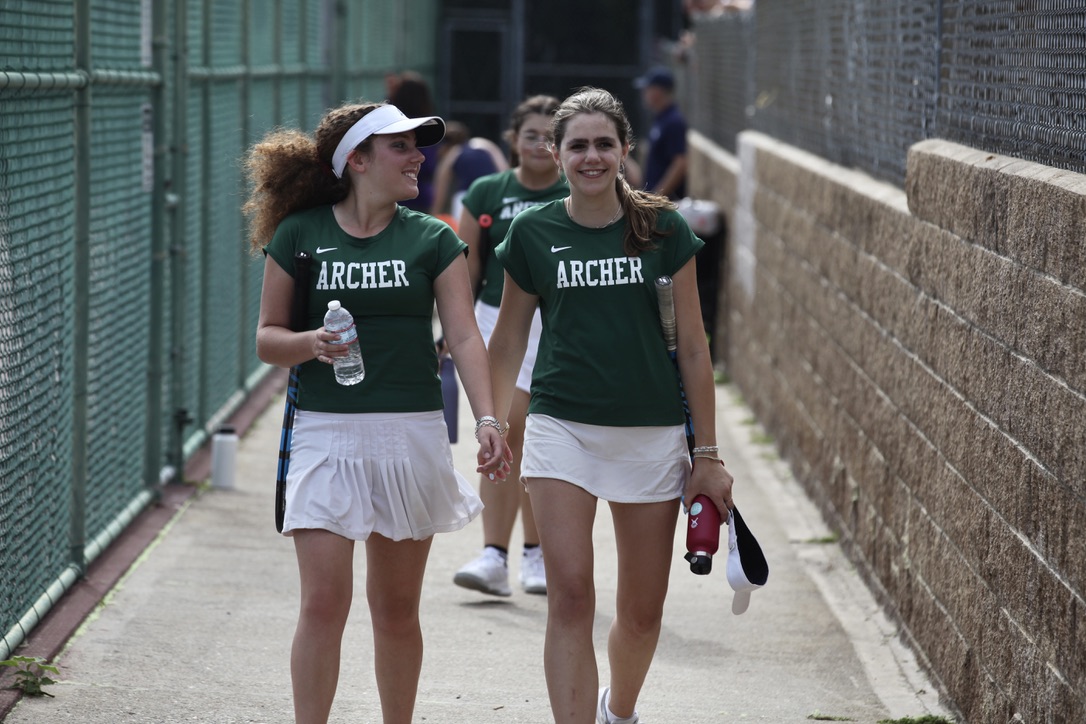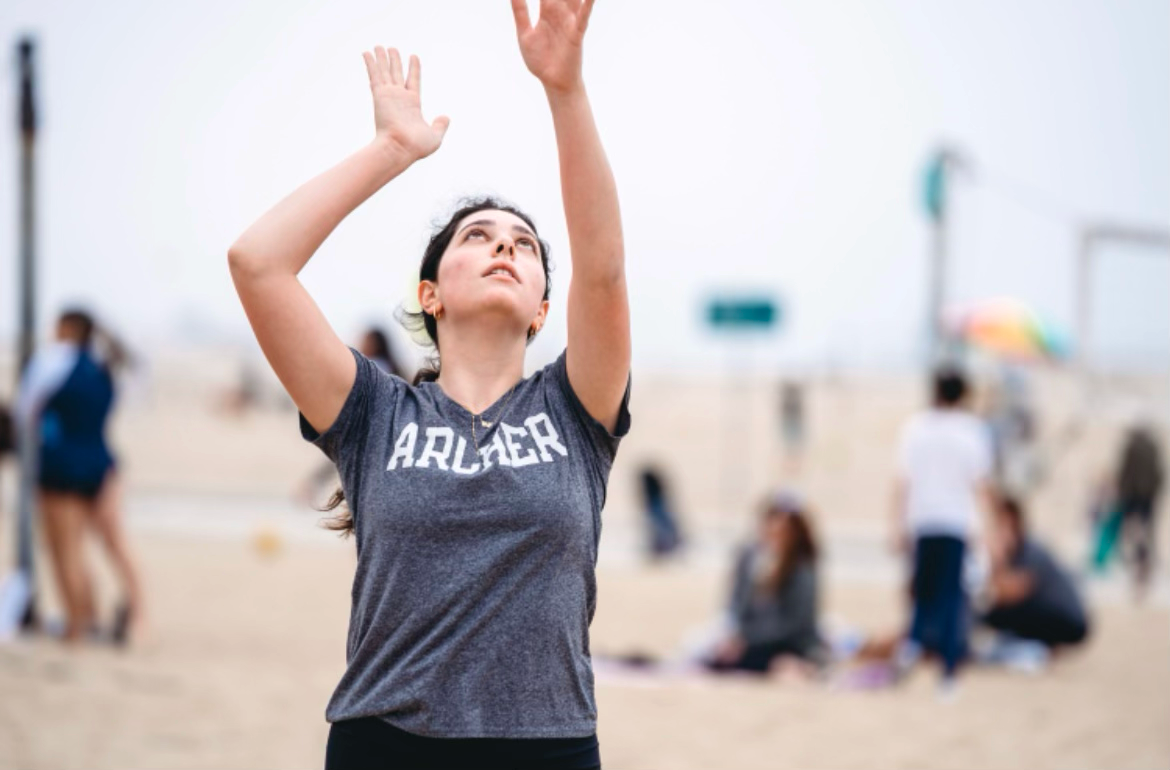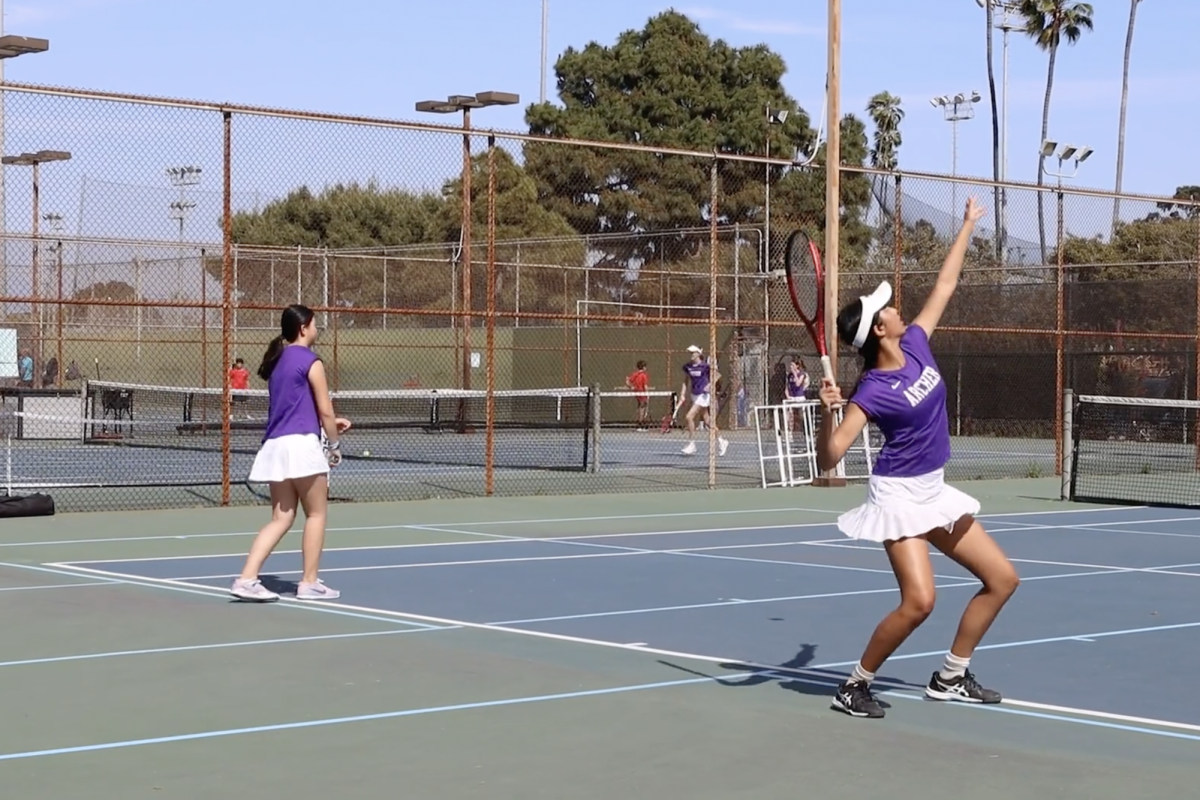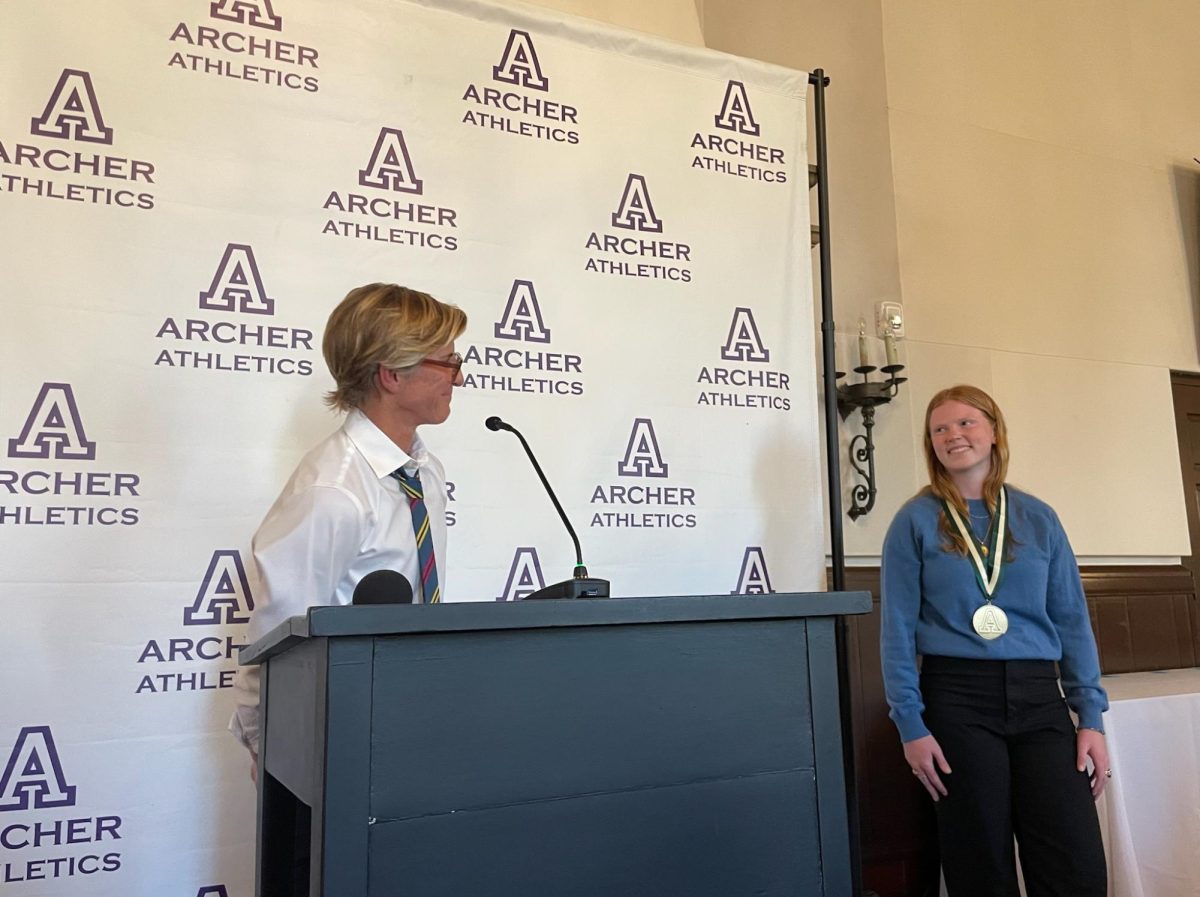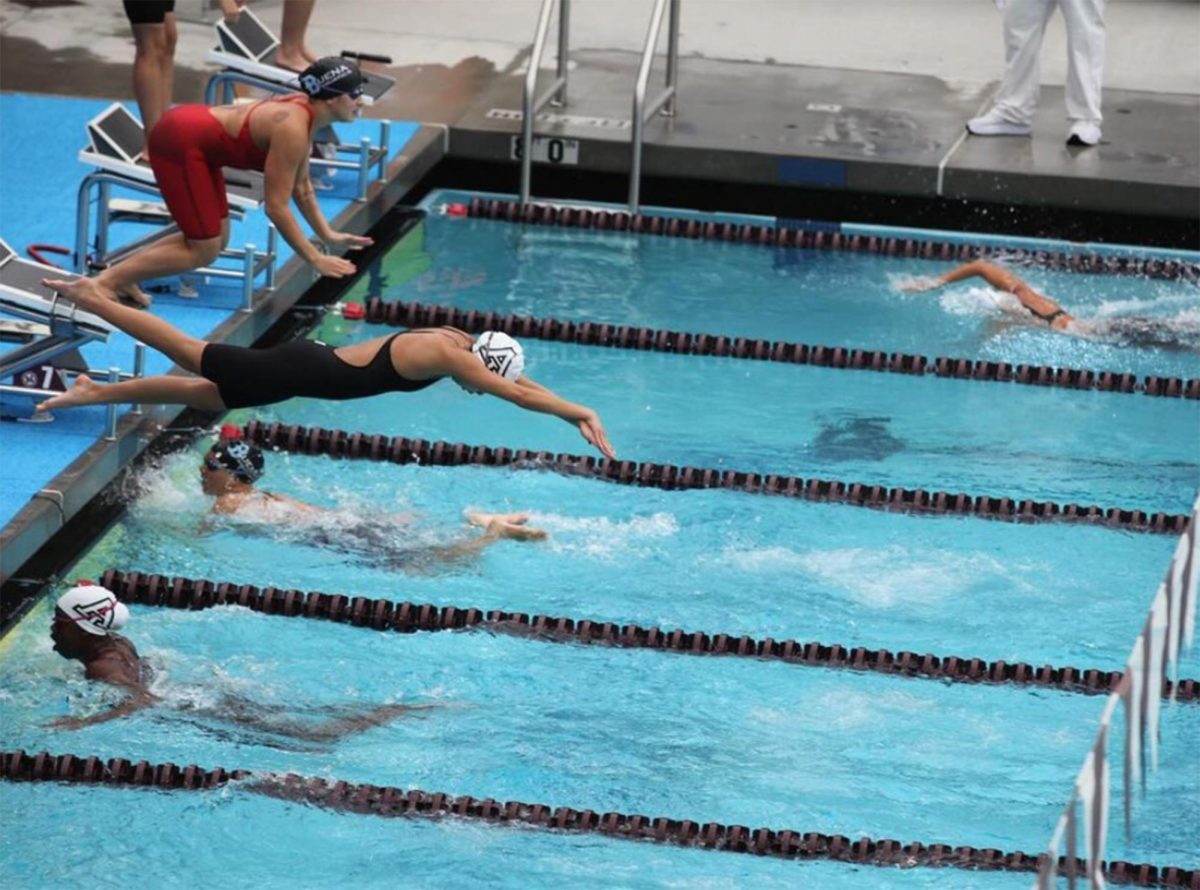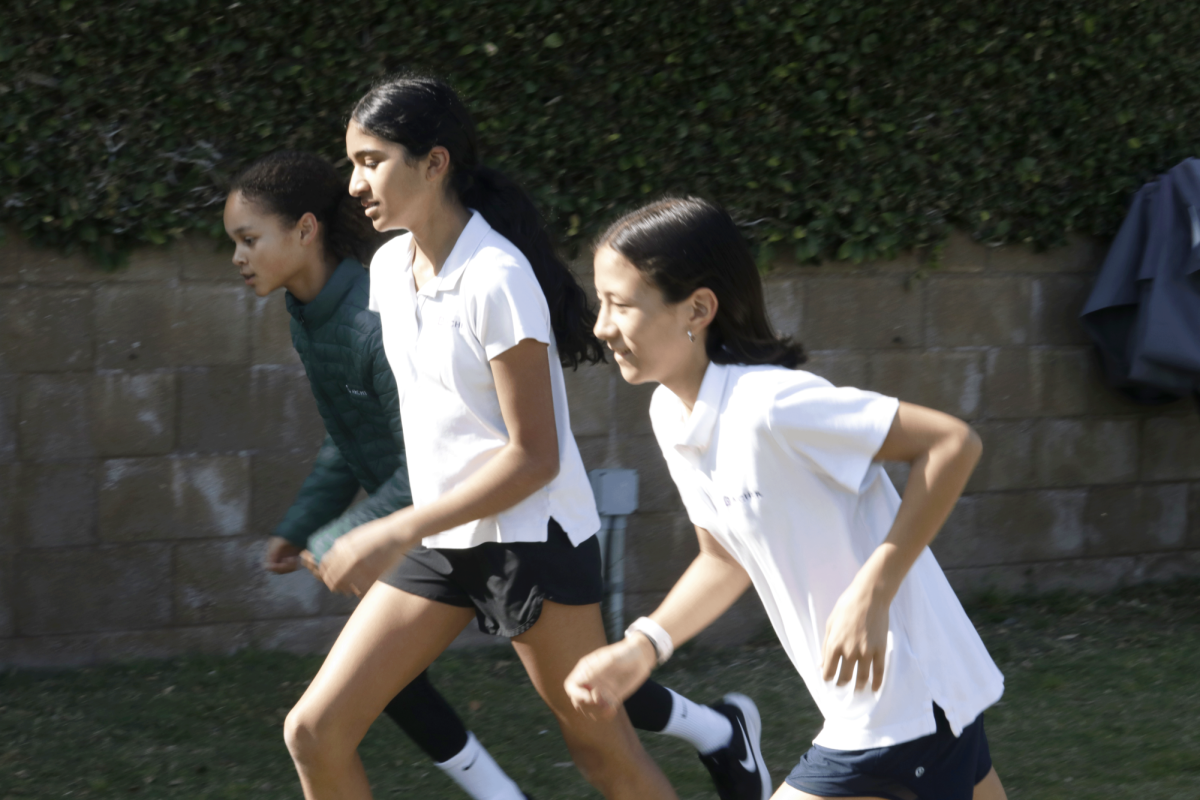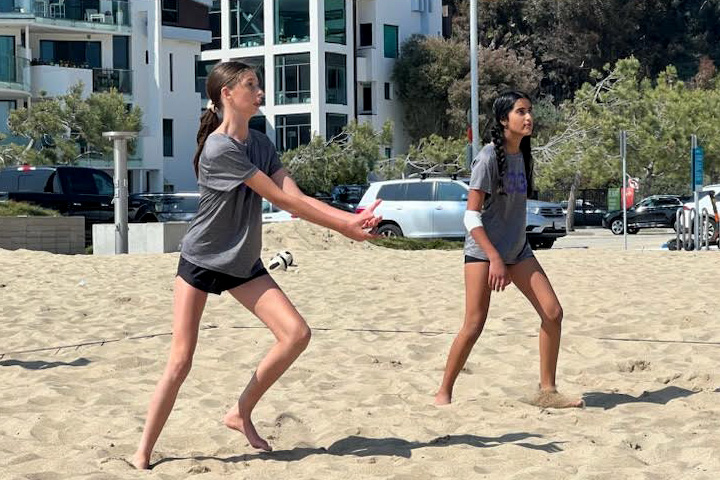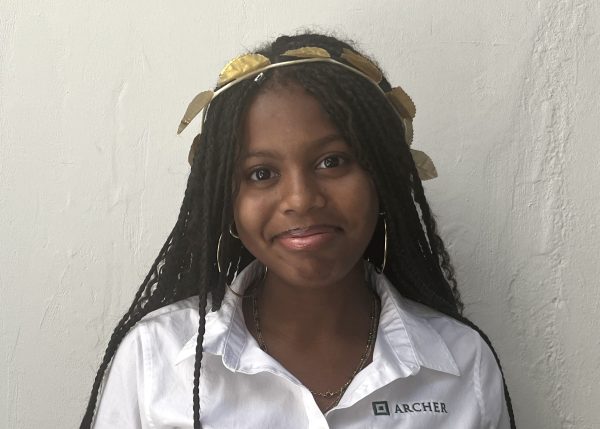Sophomore Tessa Moshtaghi nervously awaits her doubles match against Saugus High School. She prepares to serve the ball, spinning her racket with anticipation. Moments before entering the court, Head Coach Paula Feingenbaum encourages the rest of the team to cheer her on — easing her stress. She serves the ball and receives the point as the roar of cheers from her teammates fills the court.
This was the scene on Oct. 13 in the JV match against Saugus High School, when the team won 5-1. The JV tennis team has a final record of 8-1, winning their most recent match against Marymount High School. Feigenbaum said the team had a strong season, and the players built off of each other’s skills nicely.
“They’re having a terrific season,” Feigenbaum said. “They’re all nicely bonding together, and we have two seniors who have been leading the team and welcoming everybody.”
Senior Emi Marmol said she has enjoyed getting to know team members in other grades and fostering friendships through tennis. Marmol has been playing for the JV tennis team since her freshman year.
“I get to connect with a lot of people who I normally don’t talk to on a regular day basis, so it’s really nice,” Marmol said.
Feigenbaum said one of her goals with the team was to motivate everyone to disconnect from their devices while on the bus and off the court.
“One weakness [of the team] is we want them to be enthusiastic and develop more of a mental game,” Feigenbaum said. “That is why we start as a team and finish as a team.”
According to the National Library of Medicine, mental toughness in athletes is consistent with the quality of their playing. The article states that a large component of building mental endurance is belief in one’s ability, which is further reinforced by peers.
Marmol said team connection depends on how the team pursues relationships. She said she understands it can be difficult to disconnect from phones and reach out to others, especially to team members in different grades.
“I definitely see people on both sides — [on the bus] some people just sit down on their phone, but I try to make an effort and talk to people,” Marmol said. “As a captain, we are trying to encourage more team bonding.”
She said the team spent time learning court strategies and practices such as mindfulness and working on their focus.
“It’s more than just hitting a tennis ball — you have to be mentally strong under pressure,” Feigenbaum said. “By the time that the girls are finished at Archer, they should be able to go out and play completely on their own from our guidance.”
The team won their most recent game against a coed high school but sometimes played against other all-girls schools. Freshman Avery Penepinto said that the team’s competitive nature slightly differs depending on what school they are playing against.
“The only two all-girls schools we’ve played against were Marymount and Marlborough — we played really well against them,” Penepinto said. “It’s the same with other schools — JV is just really good.”
Marmol said a highlight from the season was getting to spend quality time with her teammates. She said she and the other cocaptain hosted a “Barbie” movie night for the team to bond. She said that small fun moments with her team made playing tennis more enjoyable.
“Movie night was definitely a highlight for me,” Marmol said. “Another time, I bought a speaker and blasted music during practice — it was a fun moment.”
Feigenbaum said her strategies for team bonding will aid the players in their life outside of tennis, and into their adult career. She said she hoped to combat cliques in the team culture, especially in an all-girls team. Feigenbaum said it is imperative that the players continue to display their Archer values in school and in tennis.
“At the beginning when we first sorted the teams, the girls on JV didn’t know each other,” Feigenbaum said. “Right now, they’re nonstop talking as if they’ve been friends for a long time.”
Moshtaghi said Feigenbaum and assistant coach Mayada Audeh empower her on and off the court, giving her constructive and encouraging feedback by acknowledging each player’s strengths and weaknesses.
“They’re really good at not correcting every single thing we do and letting us figure it out yourselves,” Moshtaghi said. “At the same time, if there’s something that we’re doing repeatedly that we are not conscious of, they will let us know without being upset — they just help us.”








